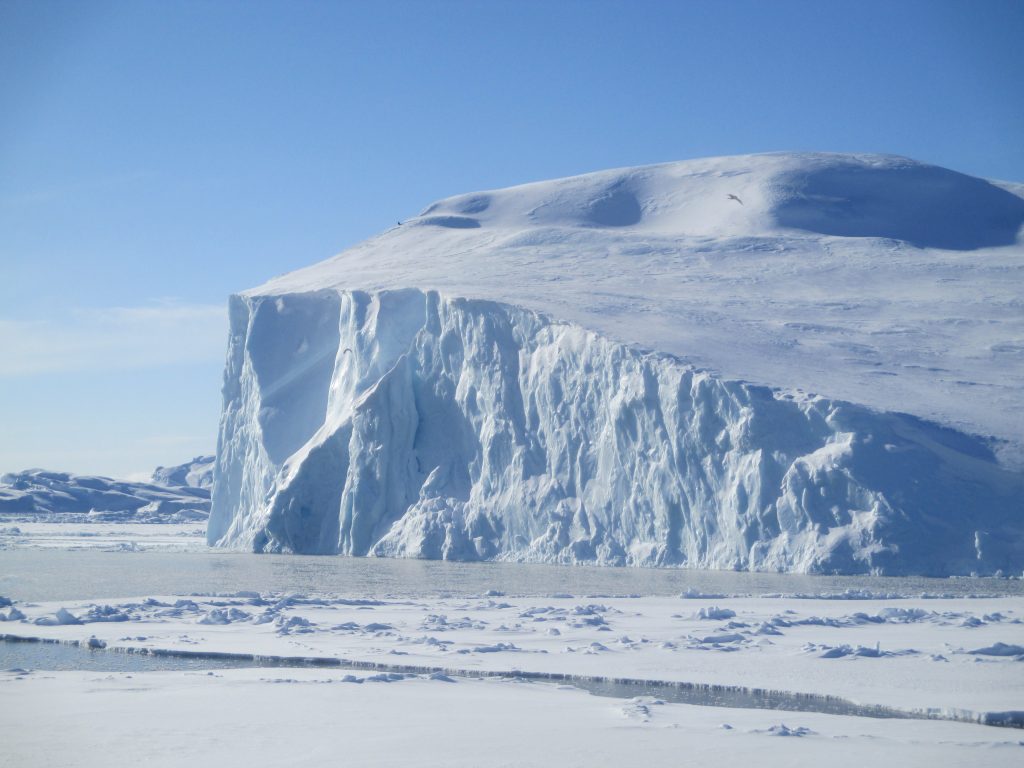This is the first draft of a new scene in Ants.
Raquel was the first to wake up. She and Gina shared a two-bedroom suite at the hot springs resort. It was the fanciest, most luxurious place Raquel had ever been. She felt out of place. As she had at the hot pool the night before in her old bathing suit. She hoped she wouldn’t have to do that again. Gina was the only one she felt comfortable enough to be like that, so exposed. She would go back to the Walden in a heartbeat, but she couldn’t do that by herself. Raquel slipped out of bed quietly, put on the thick bathrobe and padded into the bathroom. Undid the robe in front of the huge mirror over the sinks, turned to take off her pajamas and stepped behind the curtain. Lathering, she thought of showering with Gina in the tiny stall at their room in the Walden, a slippery being with four arms and legs, active mouths. Drying off in the harsh light, she remembered her mother’s disapproval, her admonition to abandon this foolish relationship, to find a kind man who would be a good father for her children. Someone like Raul, she thought, except the Rauls of the world end up with pretty girls like Claudine and Gina. Not with girls with scars. Raquel leaned toward the mirror, focusing on the marks left on the right side of her face by an untimely launch of home-made fireworks. It’s okay when I look this way, she told herself for the millionth time, turning her good side to the mirror.
Gina was outside, waiting in her bathrobe for a turn at the shower. You could have come and been with me, Raquel said. There was only an awkward grimace from Gina, who rose and followed the footprints into the bathroom, warm and humid when she would have preferred it fresh and dry. She used the toilet, adding a new funk. Took her shower, dreading the long car ride ahead, to the other side of the desert, according to Steve. He thinks he can get them to stay together, Gina thought, but he’s wrong. Claudine has already left David, already looking at new conquests. Raul, maybe. Not that she cared what happened to him, but she was sure Claudine would chew Raul up and spit him out. Gina deliberately left the bathroom messier than she normally would. Let the princess deal with it.
Outside, the princess was having coffee with Raquel at the cozy table in the kitchen area. This bothered Gina, that Raquel was getting cozy with her, that her girlfriend could be gullible at times, too eager to please. That her girlfriend is dressed and Claudine is still in her bathrobe. “Sorry for the mess in there,” she said, and headed into the room she’d shared with Raquel, who had already made the bed. “They have their own housekeeping here,” she muttered to no one.
Claudine doesn’t mistake Gina’s quip about the state of the bathroom as an apology. From the pained look in Raquel’s face – please forgive my lover’s rudeness – she doesn’t think Raquel does either. Claudine doesn’t know what Gina’s problem is, but she seems to have one.
“What’s eating her?”
Raquel squirms metaphorically, stirs more creamer into her already well-stirred coffee. “Sometimes she is grumpy in the morning.”
Claudine realizes a diplomat resides within Raquel’s quiet, wallflower life. You would make a good mother, maybe even a good wife, she thinks, deciding to try to make things easier for Raquel. If possible.
“I’m looking forward to this.” In fact, Claudine has arisen hungry for bear, eager for a showdown with her idiot boyfriend.
Raquel makes a sound like Claudine’s father makes, a contemplative hum halfway below the threshold of audibility. You feel it more than hear it. The disagreeing affirmation. “You don’t want to go?”
Raquel’s eyebrows twist. “It feel like everything is coming undone.”
There is a knock on the door. Steve says good morning on the other side.
“Just a minute,” Raquel says. Claudine goes to the door. Steve is knocked a little off kilter by the bathrobe.
“Want some coffee,” she says, holding the door open, doing a Vanna arm-sweep toward the nook, where Raquel doesn’t know what to do.
He pushes his glasses up. “No. Had some. Are you guys ready to go?”
On cue, Gina comes out of her bedroom in street clothes. “Some of us are,” Claudine says. She senses that Steve is trying to take charge here, run this expedition on his schedule. “Is there a rush?”
She can see he’s a peeved. “Well, it’s a long drive to Baker.”
“How long.”
He hems, “I dunno,” then haws, “pretty long,”
She allows herself a half roll of the eyes and turns away. “I’ll get a wiggle on then.” Walking toward the bathroom on the balls of her feet.

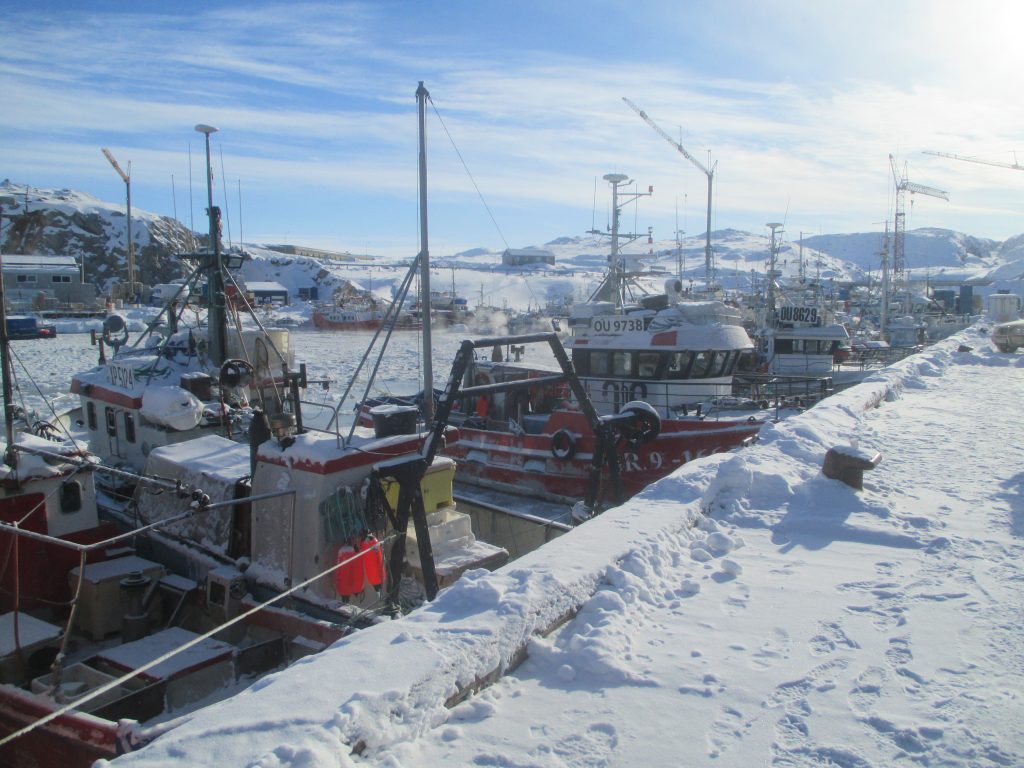
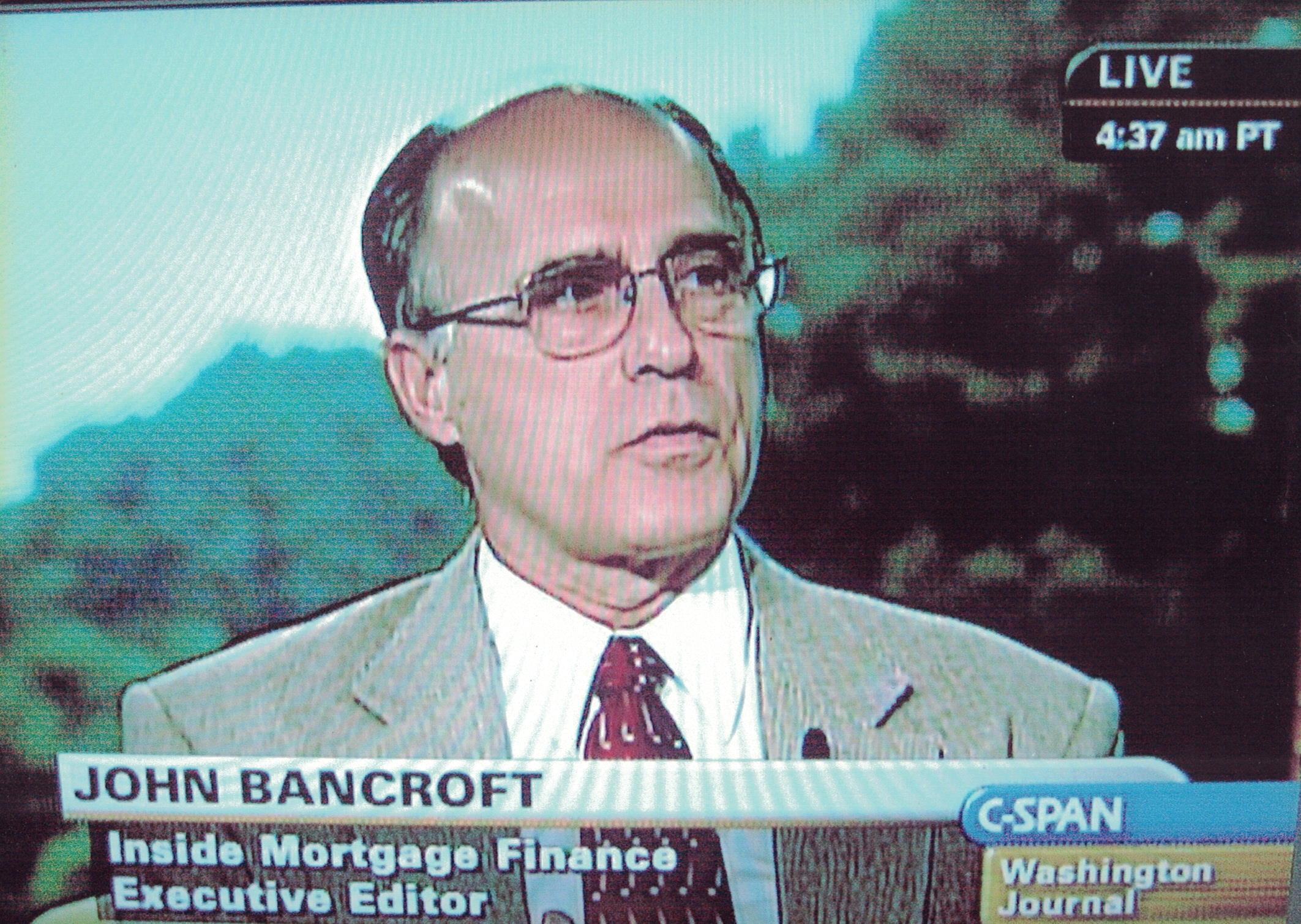
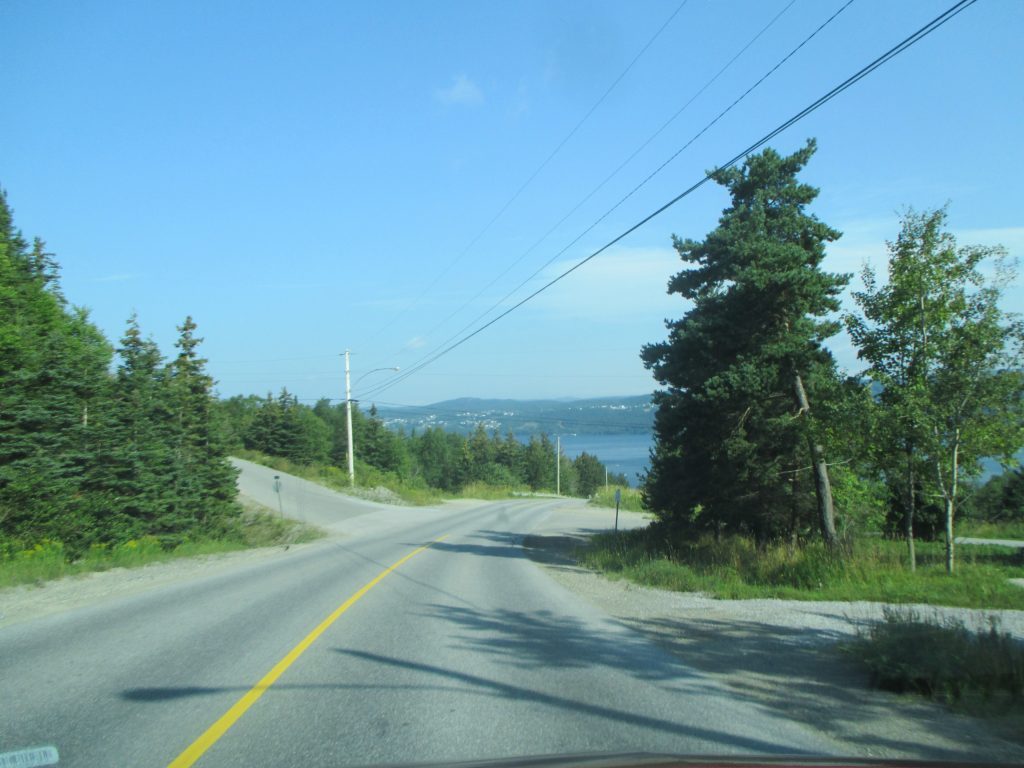
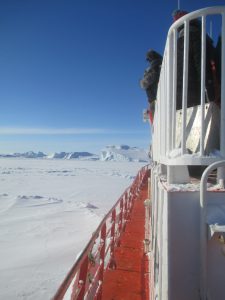 There is a small but hearty band of us forward on the main deck, intent on our progress, pounding away at the ice regardless of how cold the seawater had to get to freeze.
There is a small but hearty band of us forward on the main deck, intent on our progress, pounding away at the ice regardless of how cold the seawater had to get to freeze.